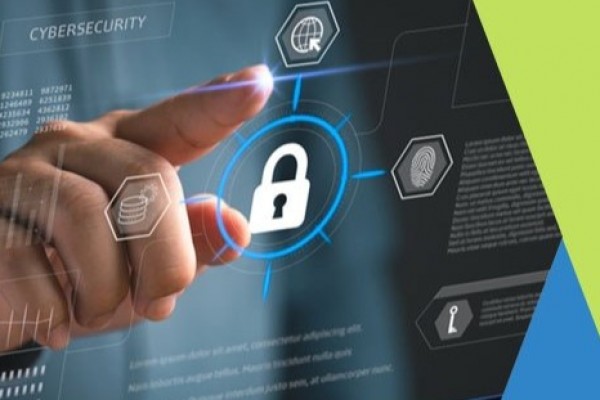
How To Improve Work Life Balance While Working From Home
August 26, 2024
Wondering how to improve work life balance while working from home? Overcome remote work challenges and enhance your private life with these tips.
Read MoreHow To Improve Work Life Balance While Working From Home
August 26, 2024
Wondering how to improve work life balance while working from home? Overcome remote work challenges and enhance your private life with these tips.
Read More
Recruitment vs Onboarding
August 26, 2024
Are you seeking a career in human resources? Discover the recruitment vs onboarding key differences and begin your dream career!
Read MoreRecruitment vs Onboarding
August 26, 2024
Are you seeking a career in human resources? Discover the recruitment vs onboarding key differences and begin your dream career!
Read More
Sales Representative Skills
August 26, 2024
Are you considering pursuing a career in the sales industry? Read this article to discover what sales representative skills you need as the ideal candidate!
Read MoreSales Representative Skills
August 26, 2024
Are you considering pursuing a career in the sales industry? Read this article to discover what sales representative skills you need as the ideal candidate!
Read More
How to Become an Insurance Instructor
August 26, 2024
How to become an insurance instructor? This guide covers the experience, qualifications, and certifications you need to start this rewarding career!
Read MoreHow to Become an Insurance Instructor
August 26, 2024
How to become an insurance instructor? This guide covers the experience, qualifications, and certifications you need to start this rewarding career!
Read More
What Is a Claims Specialist?
July 17, 2024
Considering a dynamic career where you can show your skills? A claims specialist might be the one for you. What is a claims specialist? Find out here!
Read MoreWhat Is a Claims Specialist?
July 17, 2024
Considering a dynamic career where you can show your skills? A claims specialist might be the one for you. What is a claims specialist? Find out here!
Read More
Onboarding Specialist vs HR Generalist
July 17, 2024
Are you looking to pursue a career in human resources? Discover the key differences of onboarding specialist vs HR generalist positions in this article!
Read MoreOnboarding Specialist vs HR Generalist
July 17, 2024
Are you looking to pursue a career in human resources? Discover the key differences of onboarding specialist vs HR generalist positions in this article!
Read More
How to Stay Motivated in Sales
July 17, 2024
Looking for career advancements in the sales industry? Discover how to stay motivated in sales and further excel as a sales representative!
Read MoreHow to Stay Motivated in Sales
July 17, 2024
Looking for career advancements in the sales industry? Discover how to stay motivated in sales and further excel as a sales representative!
Read More
Types of Sales Reps
July 17, 2024
Are you looking for new career opportunities as a sales representative? Read this article to discover the types of sales reps and their key responsibilities!
Read MoreTypes of Sales Reps
July 17, 2024
Are you looking for new career opportunities as a sales representative? Read this article to discover the types of sales reps and their key responsibilities!
Read More
What Is a Customer Sales Representative?
June 3, 2024
What is a customer sales representative? If you are thinking of pursuing a career in sales, click here to learn more about the skills and duties needed.
Read MoreWhat Is a Customer Sales Representative?
June 3, 2024
What is a customer sales representative? If you are thinking of pursuing a career in sales, click here to learn more about the skills and duties needed.
Read More
Pros and Cons of Working From Home
June 3, 2024
Can’t decide between a remote or in-office position? Click here to explore the pros and cons of working from home to make the best decision for your career!
Read MorePros and Cons of Working From Home
June 3, 2024
Can’t decide between a remote or in-office position? Click here to explore the pros and cons of working from home to make the best decision for your career!
Read More
How Do Insurance Specialists Manage Client Data Securely From Home?
June 3, 2024
Working remotely comes with certain data security challenges. So, how do insurance specialists manage client data securely from home? Click here to find out!
Read MoreHow Do Insurance Specialists Manage Client Data Securely From Home?
June 3, 2024
Working remotely comes with certain data security challenges. So, how do insurance specialists manage client data securely from home? Click here to find out!
Read More
What Are the Key Elements of a Successful Onboarding Process?
June 3, 2024
Wondering what are the key elements of a successful onboarding process? Discover how to improve employee experience when integrating them in the workplace.
Read MoreWhat Are the Key Elements of a Successful Onboarding Process?
June 3, 2024
Wondering what are the key elements of a successful onboarding process? Discover how to improve employee experience when integrating them in the workplace.
Read More
What Are the Latest Trends in Insurance Training?
June 3, 2024
As a growing industry, insurance often has new trends. Stay tuned to learn what are the latest trends in insurance training, whose goal is successful learning.
Read MoreWhat Are the Latest Trends in Insurance Training?
June 3, 2024
As a growing industry, insurance often has new trends. Stay tuned to learn what are the latest trends in insurance training, whose goal is successful learning.
Read More
What Training Do Bilingual Contact Center Leaders Need?
June 3, 2024
What training do bilingual contact center leaders need? If you are interested in a career as a contact center leader, read on for the necessary skills.
Read MoreWhat Training Do Bilingual Contact Center Leaders Need?
June 3, 2024
What training do bilingual contact center leaders need? If you are interested in a career as a contact center leader, read on for the necessary skills.
Read More
Qualities of a Good Recruiter
June 3, 2024
Are you wondering what the most important qualities of a good recruiter are? Click here to learn what skills and qualities you should develop as a recruiter.
Read MoreQualities of a Good Recruiter
June 3, 2024
Are you wondering what the most important qualities of a good recruiter are? Click here to learn what skills and qualities you should develop as a recruiter.
Read More
Challenges of Managing a Bilingual Call Center
June 3, 2024
What are the challenges of managing a bilingual call center? Keep reading to discover what kind of problems contact center leaders deal with and overcome.
Read MoreChallenges of Managing a Bilingual Call Center
June 3, 2024
What are the challenges of managing a bilingual call center? Keep reading to discover what kind of problems contact center leaders deal with and overcome.
Read More
Benefits of Working from Home for Employers
May 29, 2024
Are you wondering about the benefits of working from home for employers? Click here to read more about the advantages and drawbacks of remote work.
Read MoreBenefits of Working from Home for Employers
May 29, 2024
Are you wondering about the benefits of working from home for employers? Click here to read more about the advantages and drawbacks of remote work.
Read More
What Makes a Great Customer Service Rep?
May 29, 2024
What makes a great customer service rep? If you want a career in customer service, click here to learn the top qualities you must have as a customer rep.
Read MoreWhat Makes a Great Customer Service Rep?
May 29, 2024
What makes a great customer service rep? If you want a career in customer service, click here to learn the top qualities you must have as a customer rep.
Read More
What Do You Need to Work from Home?
May 29, 2024
Thinking about working from home, or have already landed such a position? But what do you need to work from home, and how to implement it in the home office?
Read MoreWhat Do You Need to Work from Home?
May 29, 2024
Thinking about working from home, or have already landed such a position? But what do you need to work from home, and how to implement it in the home office?
Read More
Preboarding vs Onboarding
May 29, 2024
As an HR professional, knowing the effort behind new hires is essential. Two key processes help prevent employee turnover: preboarding vs onboarding.
Read MorePreboarding vs Onboarding
May 29, 2024
As an HR professional, knowing the effort behind new hires is essential. Two key processes help prevent employee turnover: preboarding vs onboarding.
Read More
What Is an Insurance Broker?
May 29, 2024
What is an insurance broker? Discover how experts like brokers assist you in the broad insurance industry in this article.
Read MoreWhat Is an Insurance Broker?
May 29, 2024
What is an insurance broker? Discover how experts like brokers assist you in the broad insurance industry in this article.
Read More
How to Make Friends When You Work from Home
May 29, 2024
Do you feel isolated in your home office? Check our guide to learn how to make friends when you work from home and achieve excellent work-life balance.
Read MoreHow to Make Friends When You Work from Home
May 29, 2024
Do you feel isolated in your home office? Check our guide to learn how to make friends when you work from home and achieve excellent work-life balance.
Read More
Types of Insurance Agents
May 29, 2024
Want to pursue a career in the insurance sector? Discover the types of insurance agents to find the perfect role for your personality and qualifications.
Read MoreTypes of Insurance Agents
May 29, 2024
Want to pursue a career in the insurance sector? Discover the types of insurance agents to find the perfect role for your personality and qualifications.
Read More
Talent Acquisition Specialist vs Recruiter
May 29, 2024
Talent acquisition and recruitment may sound like synonyms, but they are not the same. Let’s see how talent acquisition specialist vs recruiter compare!
Read MoreTalent Acquisition Specialist vs Recruiter
May 29, 2024
Talent acquisition and recruitment may sound like synonyms, but they are not the same. Let’s see how talent acquisition specialist vs recruiter compare!
Read More
Afni employees level up their careers with Indiana Tech!
May 23, 2024
Our U.S. employees have boosted their careers and earned degrees, thanks to our empowering partnership with Indiana Tech! Offering scholarships, tuition reimbursement, and flexible online learning, we make education accessible for everyone. Read their inspiring stories here!
Read MoreAfni employees level up their careers with Indiana Tech!
May 23, 2024
Our U.S. employees have boosted their careers and earned degrees, thanks to our empowering partnership with Indiana Tech! Offering scholarships, tuition reimbursement, and flexible online learning, we make education accessible for everyone. Read their inspiring stories here!
Read More
How to Become an Insurance Verification Specialist
April 3, 2024
Do you want to have a dynamic job? Learn how to become an insurance verification specialist and check what it takes to become a part of the Afni family.
Read MoreHow to Become an Insurance Verification Specialist
April 3, 2024
Do you want to have a dynamic job? Learn how to become an insurance verification specialist and check what it takes to become a part of the Afni family.
Read More
Customer Service Representative Job Description
April 3, 2024
Want to learn more about the customer service representative job description? Click here to find out if this is the right opportunity to start a career at Afni!
Read MoreCustomer Service Representative Job Description
April 3, 2024
Want to learn more about the customer service representative job description? Click here to find out if this is the right opportunity to start a career at Afni!
Read More
What Does a Bilingual Sales Representative Do?
April 3, 2024
Bilinguals can work as sales representatives, and companies consider them invaluable assets. What does a bilingual sales representative do? Read on!
Read MoreWhat Does a Bilingual Sales Representative Do?
April 3, 2024
Bilinguals can work as sales representatives, and companies consider them invaluable assets. What does a bilingual sales representative do? Read on!
Read More
Which Industries Have a High Demand for Bilingual Professionals?
April 3, 2024
Globalization and advanced tech opened up the world, making communication easier. Let’s see which industries have a high demand for bilingual professionals!
Read MoreWhich Industries Have a High Demand for Bilingual Professionals?
April 3, 2024
Globalization and advanced tech opened up the world, making communication easier. Let’s see which industries have a high demand for bilingual professionals!
Read More
Benefits of Multilingual Customer Support in Insurance
April 3, 2024
Want to learn the benefits of multilingual customer support in insurance? Discover how you will enhance market reach, customer satisfaction, and more.
Read MoreBenefits of Multilingual Customer Support in Insurance
April 3, 2024
Want to learn the benefits of multilingual customer support in insurance? Discover how you will enhance market reach, customer satisfaction, and more.
Read More
How to Work as a Customer Service Representative From Home
April 3, 2024
Looking for a remote job? With the right skills, you can work as a customer service rep. How to work as a customer service representative from home?
Read MoreHow to Work as a Customer Service Representative From Home
April 3, 2024
Looking for a remote job? With the right skills, you can work as a customer service rep. How to work as a customer service representative from home?
Read More
How to Work as an Insurance Agent From Home
April 3, 2024
Insurance agents enjoy remote work flexibility among other benefits. Click here to learn how to work as an insurance agent from home.
Read MoreHow to Work as an Insurance Agent From Home
April 3, 2024
Insurance agents enjoy remote work flexibility among other benefits. Click here to learn how to work as an insurance agent from home.
Read More
Call Center Team Leader Responsibilities
April 3, 2024
Want to apply for a promotion after being a call center agent? Find out the call center team leader responsibilities and see if you can manage such a role.
Read MoreCall Center Team Leader Responsibilities
April 3, 2024
Want to apply for a promotion after being a call center agent? Find out the call center team leader responsibilities and see if you can manage such a role.
Read More
Questions to Ask an Insurance Company During an Interview
April 3, 2024
Looking for questions to ask an insurance company during an interview? Discover the best questions you should have in mind to leave a positive impression.
Read MoreQuestions to Ask an Insurance Company During an Interview
April 3, 2024
Looking for questions to ask an insurance company during an interview? Discover the best questions you should have in mind to leave a positive impression.
Read More
Is Work from Home More Productive?
April 3, 2024
Is work from home more productive? Discover the insights from recent studies on the emerging trend adopted by an increasing number of companies.
Read MoreIs Work from Home More Productive?
April 3, 2024
Is work from home more productive? Discover the insights from recent studies on the emerging trend adopted by an increasing number of companies.
Read More
How to Find Legitimate Work from Home Jobs
February 27, 2024
Do you want to know how to find legitimate work from home jobs? In this article you will explore reliable opportunities and avoid scams with expert tips on remote employment.
Read MoreHow to Find Legitimate Work from Home Jobs
February 27, 2024
Do you want to know how to find legitimate work from home jobs? In this article you will explore reliable opportunities and avoid scams with expert tips on remote employment.
Read More
How to Find a Recruiter to Find Me a Job
February 27, 2024
How to find a recruiter to find me a job? Check out this article to discover the best practices for finding good recruiters and why they’re important!
Read MoreHow to Find a Recruiter to Find Me a Job
February 27, 2024
How to find a recruiter to find me a job? Check out this article to discover the best practices for finding good recruiters and why they’re important!
Read More
What Questions to Ask Recruiter?
February 27, 2024
Are you wondering how to land your dream job and what questions to ask recruiter? Check this article to discover the questions you should ask the recruiters!
Read MoreWhat Questions to Ask Recruiter?
February 27, 2024
Are you wondering how to land your dream job and what questions to ask recruiter? Check this article to discover the questions you should ask the recruiters!
Read More
How to Know if a Recruiter Is Legitimate?
February 27, 2024
Want to find out how to know if a recruiter is legitimate? Click here to learn what gives out scammers and expert tips on how to recognize a real job opportunity.
Read MoreHow to Know if a Recruiter Is Legitimate?
February 27, 2024
Want to find out how to know if a recruiter is legitimate? Click here to learn what gives out scammers and expert tips on how to recognize a real job opportunity.
Read More
Customer Service Job Titles
February 27, 2024
What are some of the known customer service job titles? Check this comprehensive article to discover a company's customer service job titles and descriptions!
Read MoreCustomer Service Job Titles
February 27, 2024
What are some of the known customer service job titles? Check this comprehensive article to discover a company's customer service job titles and descriptions!
Read More
What Is an Onboarding Specialist?
February 27, 2024
Interested in becoming an onboarding specialist? Click here to find out what is an onboarding specialist, their job responsibilities, and necessary skills.
Read MoreWhat Is an Onboarding Specialist?
February 27, 2024
Interested in becoming an onboarding specialist? Click here to find out what is an onboarding specialist, their job responsibilities, and necessary skills.
Read More
What Does a Recruiter Do?
February 27, 2024
Dive into the world of hiring and discover what does a recruiter do. Explore the recruiting responsibilities, skills, and challenges of this pivotal role!
Read MoreWhat Does a Recruiter Do?
February 27, 2024
Dive into the world of hiring and discover what does a recruiter do. Explore the recruiting responsibilities, skills, and challenges of this pivotal role!
Read More
What Is the Demand for Bilingual Insurance Professionals?
November 23, 2023
Do you speak two languages and are looking for a career in insurance? Then, you must find out what is the demand for bilingual insurance professionals.
Read MoreWhat Is the Demand for Bilingual Insurance Professionals?
November 23, 2023
Do you speak two languages and are looking for a career in insurance? Then, you must find out what is the demand for bilingual insurance professionals.
Read More
How Does Bilingualism Impact the Insurance Industry Diversity and Inclusion?
November 23, 2023
How does bilingualism impact the insurance industry diversity and inclusion? Explore the positive effects and its significance for the industry's future.
Read MoreHow Does Bilingualism Impact the Insurance Industry Diversity and Inclusion?
November 23, 2023
How does bilingualism impact the insurance industry diversity and inclusion? Explore the positive effects and its significance for the industry's future.
Read More
How Do Insurance Companies Assess Language Proficiency during Hiring?
November 23, 2023
Having excellent language knowledge is vital for career advancement. But how do insurance companies assess language proficiency during hiring?
Read MoreHow Do Insurance Companies Assess Language Proficiency during Hiring?
November 23, 2023
Having excellent language knowledge is vital for career advancement. But how do insurance companies assess language proficiency during hiring?
Read More
What Are the Benefits of Bilingual Skills in the Insurance Industry?
November 23, 2023
What are the benefits of bilingual skills in the insurance industry? Explore how multilingual proficiency fosters industry growth.
Read MoreWhat Are the Benefits of Bilingual Skills in the Insurance Industry?
November 23, 2023
What are the benefits of bilingual skills in the insurance industry? Explore how multilingual proficiency fosters industry growth.
Read More
What Are the Responsibilities of a Bilingual Insurance Agent?
November 23, 2023
What are the responsibilities of a bilingual insurance agent? Check out this guide and discover your day-to-day tasks as part of the Afni family.
Read MoreWhat Are the Responsibilities of a Bilingual Insurance Agent?
November 23, 2023
What are the responsibilities of a bilingual insurance agent? Check out this guide and discover your day-to-day tasks as part of the Afni family.
Read More
What Does a Typical Day in an Insurance Job Look Like?
August 2, 2023
What does a typical day in an insurance job look like? If you are wondering, check this article to discover the most common insurance jobs and their daily tasks!
Read MoreWhat Does a Typical Day in an Insurance Job Look Like?
August 2, 2023
What does a typical day in an insurance job look like? If you are wondering, check this article to discover the most common insurance jobs and their daily tasks!
Read More
How To Transition Into Insurance Jobs From Another Industry
August 1, 2023
Have you been thinking about a career change lately? Read this article to discover how to transition into insurance jobs from another industry with ease!
Read MoreHow To Transition Into Insurance Jobs From Another Industry
August 1, 2023
Have you been thinking about a career change lately? Read this article to discover how to transition into insurance jobs from another industry with ease!
Read More
Learn How to Stand Out in the Competitive Insurance Job Market
July 29, 2023
Looking for a position in a company that allows you to grow your career? Click here to discover how to stand out in the competitive insurance job market.
Read MoreLearn How to Stand Out in the Competitive Insurance Job Market
July 29, 2023
Looking for a position in a company that allows you to grow your career? Click here to discover how to stand out in the competitive insurance job market.
Read More
Explore the Industry: Why Insurance Jobs Are in High Demand
July 29, 2023
Industry trends come and go, but insurance jobs stay consistent despite drastic economic changes. Click here to learn why insurance jobs are in high demand.
Read MoreExplore the Industry: Why Insurance Jobs Are in High Demand
July 29, 2023
Industry trends come and go, but insurance jobs stay consistent despite drastic economic changes. Click here to learn why insurance jobs are in high demand.
Read More
Most Effective Job Search Strategies For Insurance Workers
July 29, 2023
Discover the most important job search strategies for insurance industry. Better your chances of getting noticed and finding a job in the insurance field.
Read MoreMost Effective Job Search Strategies For Insurance Workers
July 29, 2023
Discover the most important job search strategies for insurance industry. Better your chances of getting noticed and finding a job in the insurance field.
Read More
Job Interview Tips: How To Land An Insurance Job
July 29, 2023
Are you looking to start your career in the insurance industry? Check out our interview tips for landing an insurance job, and impress your interviewer.
Read MoreJob Interview Tips: How To Land An Insurance Job
July 29, 2023
Are you looking to start your career in the insurance industry? Check out our interview tips for landing an insurance job, and impress your interviewer.
Read More
Why Insurance Jobs Provide Job Security
July 29, 2023
Starting a new job position can be stressful and somewhat scary. You don’t always know what to expect, how you’ll be treated, and what your colleagues and employers will be like.
Read MoreWhy Insurance Jobs Provide Job Security
July 29, 2023
Starting a new job position can be stressful and somewhat scary. You don’t always know what to expect, how you’ll be treated, and what your colleagues and employers will be like.
Read More
Five Perks of Customer Service Jobs
March 23, 2023
Many areas are rather competitive to break into right now, and jobs can be scarce. However, the customer service demand remains steady, and the field continues to grow in the U.S.
Read MoreFive Perks of Customer Service Jobs
March 23, 2023
Many areas are rather competitive to break into right now, and jobs can be scarce. However, the customer service demand remains steady, and the field continues to grow in the U.S.
Read More




